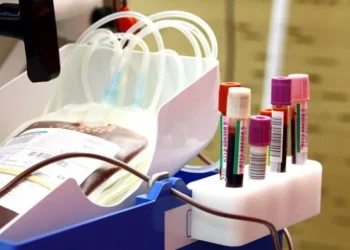KABUL: Around 10 million children in war-ravaged Afghanistan are at risk of not having enough food to eat in 2021, a global humanitarian organisation said, calling for billions in new funds for aid.
Just more than 18 million Afghans, including 9.7 million children, are badly in need of lifesaving support, including food, Save the Children said in a statement. According to the data, almost half of the country’s population needs some form of support.
Chris Nyamandi, the organisation’s Afghanistan country director, said Afghans are suffering under a combination of violent conflict, poverty and the virus pandemic.
“Millions of people are suffering every day because of poverty and conflict. It’s especially hard on children, many of whom have known nothing but violence,” he said.
“Conflict continues to cause extreme physical and psychological harm, forcing hundreds of thousands of people to flee their homes every year. The fighting will continue to fuel humanitarian needs this year. This will threaten people’s wellbeing and limit access to essential services like hospitals and clinics as well as humanitarian support.”
“The schools are now closed because of harsh winter conditions and COVID-19 restrictions and they won’t reopen until March. The impact of the COVID-19 pandemic is exacerbating the humanitarian crisis.”
Nyamandi said with no immediate end in sight to the decades-long conflict, millions of people will continue to suffer. “It’s a desperately bad situation that needs urgent attention from the international community,” he said.
In 2020, the World Bank estimated that the pandemic had hugely disrupted imports, including vital household items, which in turn led to rapid inflation. The added health and economic strains of the pandemic have deepened the humanitarian impact across the country.
COVID-19 in Afghanistan is having a disastrous impact on millions of vulnerable families. In response, Save the Children and its partners have called for at least another $1.3 billion in humanitarian assistance to help the Afghan people in 2021.
Without it, the humanitarian community will struggle to meet the growing needs of an entire generation of children whose lives have been blighted by conflict.
In an earlier report published in December, the group said more than 300,000 Afghan children faced freezing winter conditions that could lead to illness and death without proper winter clothing and heating.
The organisation said it provided winter survival kits to more than 100,000 families in Afghanistan. The kits included fuel and a heater, blankets and winter clothes, including coats, socks, shoes and hats.


































